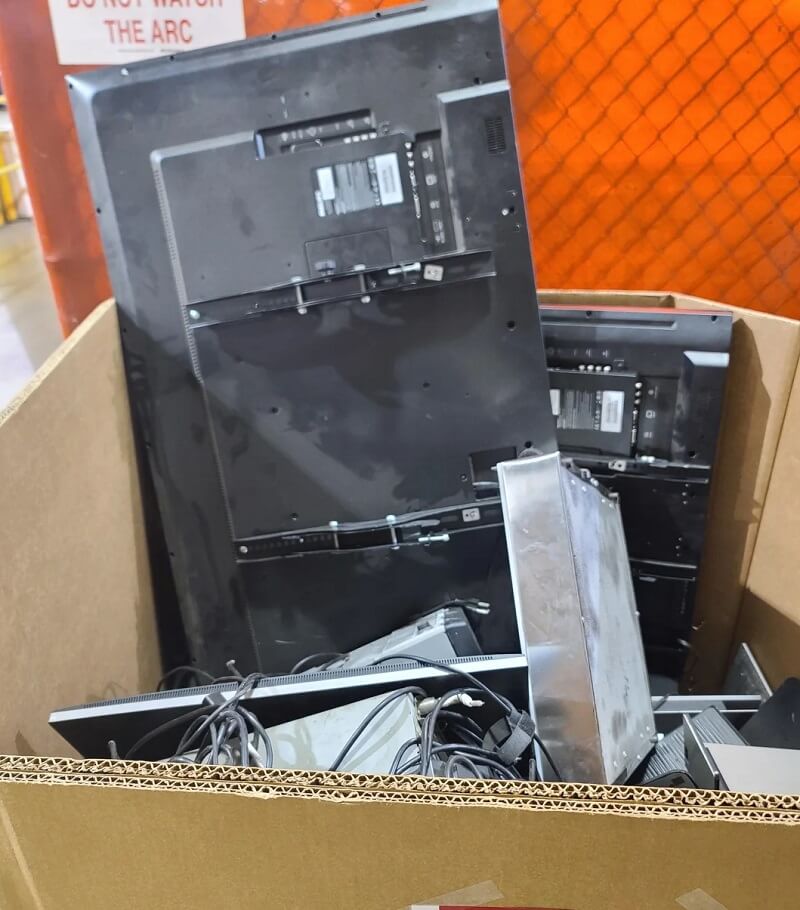An employee of an unnamed company highlighted how we might be taking for granted just how far our technology has come, sharing an angering photo of a box of electronic waste.
What happened?
The employee revealed in the r/mildlyinfuriating subreddit that their company was sending unsold electronics straight to the dump — apparently for no good reason.

"The company I work for would rather throw away perfectly good huge [TVs] than donate or sell them," they wrote. "I'm sure someone will tell me there's some sort of policy at play here, but every other company I've worked for would auction off to employees or sell equipment. This place just trashes it all."
Why is this important?
As technology has quickly evolved and become much more affordable, our consumption of new electronics has grown. Overconsumption of any type of resource contributes to an out-of-balance planet, and the effects can include more frequent extreme weather, biodiversity loss, food insecurity, and increased health costs.
However, e-waste carries a unique risk. The World Health Organization warns that improper storage, recycling, or dumping of e-waste frequently releases lead into our environment. This toxic metal can cause cardiovascular problems, organ damage, and neurological issues.
Some electronics also have components made of plastic, which doesn't quickly degrade and is generally made from highly polluting fuels like motor oil and gasoline.
Why would the company throw away these items?
More than one commenter wondered whether the original poster was misunderstanding the situation.
"This is clearly an [e-waste] collection bin where the devices may be cleaned up and resold or recycled in a safe way," one suggested.
"Sometimes these 'business displays' aren't really a 'TV' because they don't actually have a tuner in them," another wrote, highlighting another potential way unnecessary waste was being generated by the sales model.
However, the OP shared in several comments that the electronics were the real deal and that they weren't allowed to take them home for their own use — even though management received extras for free when they were new.
What ultimately happened to the seemingly good products is unclear without more information.
What's being done about e-waste more broadly?
While the OP's post may have been disheartening news for some, one commenter revealed that they worked to ensure their unnamed business reduced its e-waste.
"I run our IT department. I always make sure everything either goes to eBay, an employee, or a charity," they shared. "... We got new workstations a couple of years ago for every single person, and the boss said I could wipe the existing ones and let everyone take one home. They were thrilled."
Educating yourself about greenwashing can help you spot companies that may not be living up to their eco-friendly claims. This allows you to invest in and support brands that limit harmful waste.
Meanwhile, there are practical ways to cut down on the fastest-growing type of waste.
Knowing what to do with bulky items like old refrigerators can be difficult, but Best Buy takes out some of the guesswork. For a fee, it will haul away items for recycling. Staples will even give you cash for items such as smartphones, digital cameras and coffee machines.
You can also take steps to limit the amount of e-waste you create by buying used electronics when possible. This practice might make your wallet happier, too.
Join our free newsletter for cool news and actionable info that makes it easy to help yourself while helping the planet.









